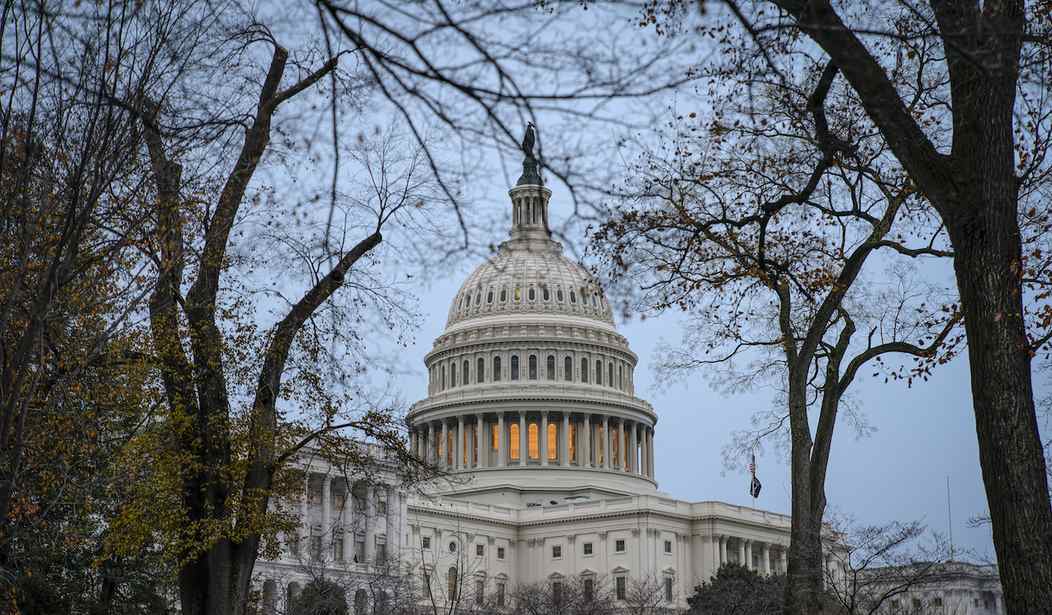As the Chinese coronavirus spreads around the globe and concerns (both health and economic) mount, President Donald Trump has proposed suspending the payroll tax to alleviate some of the economic burden that Americans are experiencing or will experience in the near future. There are reasons for and against this somewhat drastic, but not unprecedented, measure.
As currently constructed, payroll taxes, in general, take 15.3 percent of every single American's paycheck every single pay period in order to fund the nation’s two largest social safety net programs: Social Security and Medicare. According to the most recent data available, Social Security’s total cost was $996.6 billion in 2018. Medicare’s total cost was $704.6 billion in 2017.
Even those self-employed are obligated to pay the payroll tax. Unlike income taxes, which can be paid at the end of the year, the government automatically collects the payroll tax in “real time.”
In Fiscal Year 2021, the U.S. government expects to collect $1.4 trillion in payroll taxes to fund Social Security and Medicare—programs that have been running deficits for years. In fact, both are forecast to be insolvent in a few decades.
If Congress decided to pass legislation that enacted an immediate payroll tax holiday, every single American on “payroll” would receive an immediate boost in their paycheck. Obviously, this would be an economic shot in the arm that could, at the very least, displace some of the economic hardship that is sure to come our way from the virus.
However, if Congress agreed to a payroll tax holiday, the budget deficit would balloon larger than ever. This year, the federal government is already on pace to run a trillion-dollar deficit. Is it wise to double-down on this unfathomable amount of deficit spending?
Recommended
Some argue, quite convincingly, that the economic consequences of the measures taken to prevent spread of coronavirus will far outweigh the ramifications of a temporary payroll tax suspension. In places like New Rochelle, New York, businesses are already experiencing huge problems because people are basically staying in their homes as much as possible. No doubt a payroll tax holiday would help these businesses (big and small) weather the rough economic waters that await.
Moreover, unbeknownst to most Americans, half of the 15.3 percent that is taken to cover payroll taxes is covered by one’s employer. The employee matches the other half. Imagine the economic surge that would ensue if all employers and employees were relieved (at least temporarily) of paying this tax burden.
To put this in real terms, an American making $25,000 per year would receive an extra $120 per month of untaxed income. That is a lot of money for people living paycheck to paycheck.
Another potential benefit of a payroll tax suspension is that it is an economic stimulus from the “bottom up.” Unlike almost all other government stimulus plans, there is practically no bureaucracy and red tape to maneuver through in order to make this happen seamlessly. Unlike subsides and government-backed loans, which need to be “distributed” throughout the country from an army of bureaucrats in Washington, DC, the payroll tax holiday requires almost no regulatory hoops or excessive barriers. It is not a “top-down” stimulus. It is a direct stimulus that will be felt immediately by every single working American and business.
Although there is a strong argument for an emergency measure such as the payroll tax holiday to combat a potential coronavirus-driven economic apocalypse, the question of its long-term consequences is more than debatable. With a $23 trillion national debt, can the country really afford to blow another huge hole in the deficit?
For better or worse, these are difficult questions that our elected representatives will have to consider as they decide whether to temporarily suspend the payroll tax. In the meantime, every single American can at least do their small part to prevent the spread through such simple measures as avoiding large gatherings and practicing good hygiene.

























Join the conversation as a VIP Member